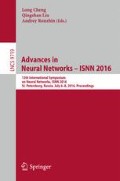Abstract
The recent rapid growth of empirical results in neuroscience has widened a proverbial explanatory gap between a first-person introspective experience and objective third-person data. Given different competing approaches, phenomenological framework proved an adequate methodological tool to bridge this gap. The present paper aims at a phenomenological representation of categorization by means of a modified functional theory of concept, termed Intentional Theory of Concept. The 1st section hereof serves as an introduction into the subject matter. In the 2nd section, we will focus on key phenomenological ideas of intentionality and analogous apperception (appresentation) and briefly describe our approach. The 3rd section contains a short summary of the modern version of the classical theory of concepts and its functional variant. Integrating the substance of the previous sections, the 4th one will offer an interpretation of categorization by means of a functional theory of concepts formally presented by typed lambda calculus. The final section provides a summary of findings and prospects for a follow-up study.
Access this chapter
Tax calculation will be finalised at checkout
Purchases are for personal use only
References
Barendregt, H.: Lambda calculi with types. In: Abramsky, S., Gabbay, D.M., Maibaum, T.S.E. (eds.) Handbook of Logic in Computer Science, vol. II, pp. 118–309. Oxford University Press (1992)
Bocharov, V., Markin, V.: Introduction to Logic. Forum, Moscow (2008). In Russian
Edelman, G.M.: Neural darwinism: selection and reentrant signalling in higher brain function. Neuron. 10, 115–125 (1993)
Edelman, G.M., Gally, J.A.: Reentry: a key mechanism for integration of brain function. Front. Integr. Neurosci. 7, 63 (2013)
Gallagher, S.: Fantasies and facts: epistemological and methodological perspectives on first and third-person perspectives. Phenomenol. Mind. 1, 40–46 (2011)
Gallagher, S., Zahavi, D.: The Phenomenological Mind: An Introduction to Philosophy of Mind. Routledge, London (2008)
Gallese, V.: Corpo vivo, simulazione incarnata e intersoggettivit: una prospettiva neurofenomenologica. In: Cappuccio, M., (ed.) Neurofenomenologia, Bruno Mondadori Milano, pp. 293–326 (2006)
Husserl, E.: Cartesian Meditations: An Introduction to Phenomenology. Martinus Nijhoff, The Hague (1960). Cairns, D. (trans.)
Ivanitsky, A.M., Ivanitsky, G.A., Sysoeva, O.V.: Brain science: on the way to solving the problem of consciousness. Int. J. Psychophysiol. 73, 101–108 (2009)
Markin, V.: Voishvillo’s Doctrine of concept: importance and prospects. Log. Inv. 20, 60–77 (2014). In Russian
McIntyre, R., Smith, D.W.: Theory of intentionality. In: Mohanty, J.N., McKenna, W.R. (eds.) Husserl’s Phenomenology: A Textbook, pp. 147–179. Center for Advanced Research in Phenomenology and University Press of America, Washington, D. C. (1989)
Motroshilova, N.: New Encyclopedia of Philosophy, 2nd edn. Intentionality, Moscow (2000)
Quiroga, R.Q.: Concept cells: the building blocks of declarative memory functions. Nat. Rev. Neurosci. 13, 587–597 (2012)
Schmicking, D., Gallagher, S. (eds.): Handbook of Phenomenology and Cognitive Science. Springer, Cambridge (2010)
Tye, M.: “Qualia”, The Stanford Encyclopedia of Philosophy (Fall 2015 Edition). In: Zalta, E.N., (ed.). http://plato.stanford.edu/archives/fall2015/entries/qualia/
Varela, F.: Neurophenomenology: a methodological remedy for the hard problem. J. Conscious. Stud. 3, 330–349 (1996)
Voishvillo, E.: Concept. Isd. Moskovskogo Universiteta, Moscow (1967). In Russian
Voishvillo, E.: Concept as a Form of Thought. Isd. Moskovskogo Universiteta, Moscow (1989). In Russian
Yuste, R.: From the neuron doctrine to neural networks. Nat. Rev. Neurosci. 16, 487–497 (2015)
Zaitsev, D.: Concept as a relevant function. In: Materials of the Workshop the Logic Center of the Institute of Philosophy, Russian Academy of Science, vol. 16, pp. 46–53 (2002). In Russian
Zaitsev, D.: Relevant logic of concepts. In: Zaitsev, D., Il’in, A., Markin, V. (eds.) Logic and Century, Sovremennii Tetradi, Moscow, pp. 130–138 (2003). In Russian
Author information
Authors and Affiliations
Corresponding author
Editor information
Editors and Affiliations
Rights and permissions
Copyright information
© 2016 Springer International Publishing Switzerland
About this paper
Cite this paper
Zaitsev, D., Zaitseva, N. (2016). Categorization in Intentional Theory of Concepts. In: Cheng, L., Liu, Q., Ronzhin, A. (eds) Advances in Neural Networks – ISNN 2016. ISNN 2016. Lecture Notes in Computer Science(), vol 9719. Springer, Cham. https://doi.org/10.1007/978-3-319-40663-3_53
Download citation
DOI: https://doi.org/10.1007/978-3-319-40663-3_53
Published:
Publisher Name: Springer, Cham
Print ISBN: 978-3-319-40662-6
Online ISBN: 978-3-319-40663-3
eBook Packages: Computer ScienceComputer Science (R0)

